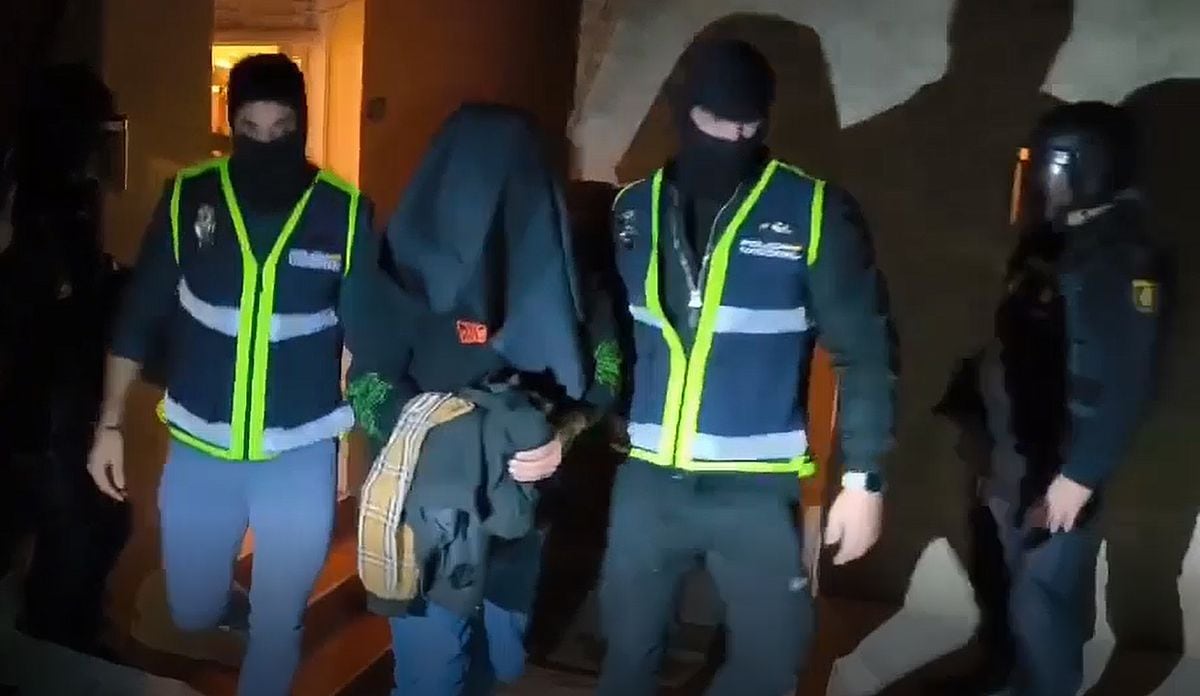This Thursday, the PP has managed to get Congress to disapprove the Minister of the Interior, Fernando Grande-Marlaska, for his management of the tragedy in Melilla on June 24.
The initiative of the popular has managed to add the support of deputies from Vox, CS, ERC, Junts and the CUP, a total of 173 yeses, and has had 160 votes against the PSOE, Unidas Podemos, PdeCat, Más País and Teruel Exists.
PNV and EH-Bildu abstained.
The disapproval of the Minister of the Interior is the first to go ahead in this legislature, although it is a more symbolic than practical gesture because it is not binding.
The initial motion of the popular, which demanded the dismissal of Grande-Marlaska, in addition to his disapproval, was born doomed to failure, but has ended up going ahead, paradoxically, thanks to the case of a Sudanese who survived that tragic day.
At the last moment, the PP replaced the dismissal of the minister with an amendment that would attract the votes of parties at the ideological antipodes of the right: the immediate transfer to Spain of one of the survivors of the tragedy who was expelled to Morocco and who wants to request refuge in Spanish territory.
Basir, the fictitious name of the young man, requested asylum at the Spanish Embassy in Rabat on December 13, exactly as required by law.
Although the young Christian stressed the danger in his country and also in Morocco,
More information
The Government keeps the Sudanese who requested asylum in the Spanish Embassy in Rabat in limbo: "I feel like a zombie"
The PP's strategy of including the Sudanese refugee did indeed attract the support of groups like ERC or Junts, who would hardly have voted in favor of anything the PP proposes, but it was also criticized by the PNV.
"They use this case as a hostage to get the vote against the minister and our group will not lend itself to this parliamentary blackmail," reproached the deputy Mikel Legarda on Wednesday.
Despite his abstention, Legarda demanded that the Government and the ambassador in Morocco transfer Basir.
The motion has exposed the contradictions of the PP itself, little given to the defense of refugees, but also those of United We Can, which has voted against an initiative that, in other circumstances, it would have defended.
an impossible balance
In the case of the popular, its deputy Ana Vázquez has maintained an almost impossible balance these months.
At the same time that she defended the actions of Spanish agents or the hot returns that her party legalized with the
gag law,
she was, together with the Catalan and Basque nationalists, one of the most belligerent against Minister Grande-Marlaska.
She has accused him of lying, of allowing Moroccan gendarmes to enter Spanish soil or of colluding with the violence carried out on the other side of the border.
Vázquez, in turn, also publicly acknowledged that she was unaware of the difficulties that African refugees have to legally request asylum in Spanish territory.
It was this surprising defense of the right to asylum by the PP that the spokesman for Unidas Podemos, Enrique Santiago, used to distance himself from a petition for more political than ideological reasons.
"The PP's concern for the right to asylum is not very credible," he said to justify his rejection of the minister's disapproval.
Although he voted against it, Santiago did publicly support the transfer of the Sudanese to Spain on Wednesday.
The IU deputy reminded Grande-Marlaska of his commitment so that "embassies and consulates can receive asylum applications."
Tensions in Parliament and in the coalition government itself underlie Santiago's rejection of the PP proposal.
Santiago, who has defended a human rights approach to the migration challenge on numerous occasions, has been lowering his critical tone against Grande-Marlaska for the management of what happened in Melilla.
The hard speech that he maintained after the tragedy was diluted when the coalition government found itself in trouble due to the revisions of sentences and releases due to the
yes is yes law.
The attacks from the right forced the reduction of the attacks of UP with the PSOE on this issue.
The PSOE, for its part, returned to defend this Wednesday its action during the events in Melilla and avoided referring to the case of the Sudanese refugee.
Deputy David Serrada accused the PP of attracting the votes of the left to condemn Grande-Marlaska: “They use the police, they twist the law, and if they have to use a humanitarian tragedy they use it.
The ridiculous thing is that there are parties that buy it”.
The PSOE even responded to DEMOS, Legal Study of Human Rights, the legal team that assists the 24-year-old and that has met with various parties to explain the legal characteristics of the case.
The disapproval of Grande-Marlaska is the last parliamentary blow related to the tragedy in Melilla.
The episode in which 23 people died has remained in the spotlight for seven months, but after the filing of the case by the Prosecutor's Office, the minister has seen his defense of the police action of that day strengthened.
In Congress, not only the actions of the State security forces have been questioned in the face of the attempt by some 2,000 people to force a border post, but also the position of Grande-Marlaska, who, far from assuming any error on the Spanish side, also He has rejected any criticism of the Moroccan agents, recorded while they clubbed the survivors.
The minister has also made statements throughout these months that he has had to rectify, such as that the Moroccan gendarmes did not enter Spanish territory.
Finally, Grande-Marlaska maintains to this day that no person died on the Spanish side of the border, a thesis questioned by two journalistic investigations by the BBC and Lighthouse Reports together with EL PAÍS,
The possibility of going to the embassies to request asylum is a right that the law includes and is the way that Spain has defended in the European Court of Human Rights in its defense of direct returns.
Although the enormous difficulties that some refugees (especially sub-Saharan Africans) have to request protection in Spanish diplomatic delegations are well known, the court assumed that it was possible to do so and, therefore, legitimate to expressly return anyone who did not exhaust all legal possibilities beforehand. to jump a fence.
After the Melilla tragedy, Grande-Marlaska himself pointed out that Spain could not accept violent assaults on its border, even less when there are legal alternatives like this.
"Spain is a host country for any asylum seeker who knocks on our doors,
but it cannot allow anyone to try to tear them down by force,” he said last November.
While deciding what to do with his case, Basir remains in hiding in Morocco.
"I can not anymore.
I am really tired of my life and I feel like a zombie, ”he told EL PAÍS from his hiding place.
Subscribe to continue reading
Read without limits
Keep reading
I'm already a subscriber


/cloudfront-eu-central-1.images.arcpublishing.com/prisa/BQ6N4VQQ2JDG3KXDRS2KRI27EU.png)
/cloudfront-eu-central-1.images.arcpublishing.com/prisa/J6S7GVYUFHX6VJHHBV5YY3DKFM.jpg)

/cloudfront-eu-central-1.images.arcpublishing.com/prisa/VZV6NXS7SREIJAIZZNECDP7DZA.jpg)

/cloudfront-eu-central-1.images.arcpublishing.com/prisa/WSGIPYQJ3ZBJBLTWACM5ZX2QGA.jpg)
/cloudfront-eu-central-1.images.arcpublishing.com/prisa/WPWGX6DIRZA3DAQ7GEHRNPNOLQ.jpg)
